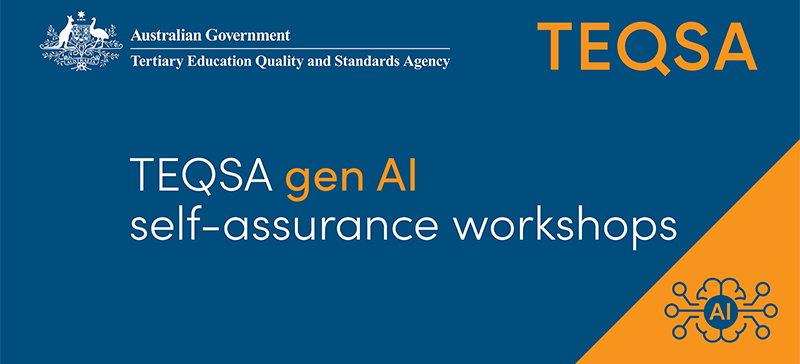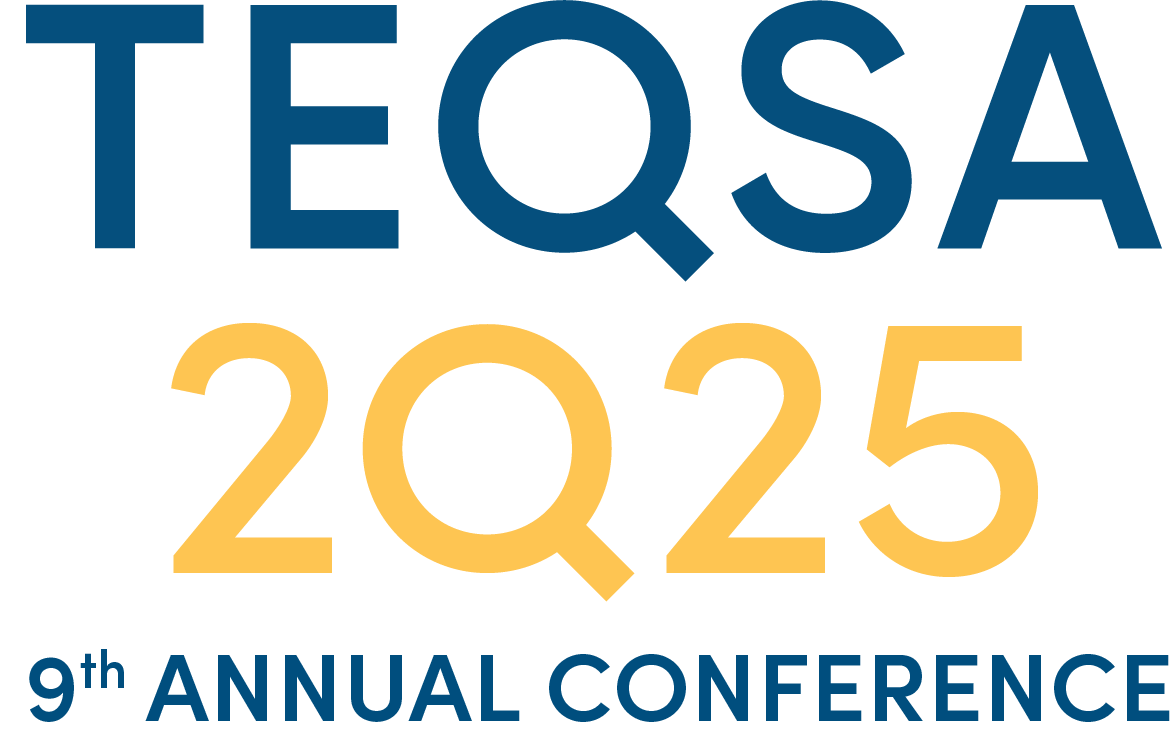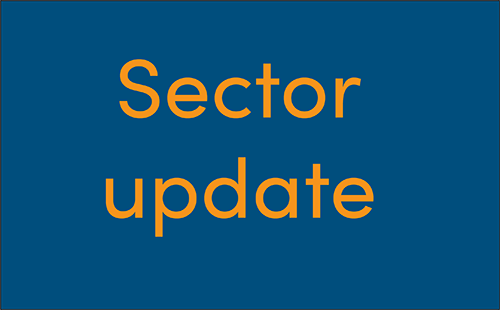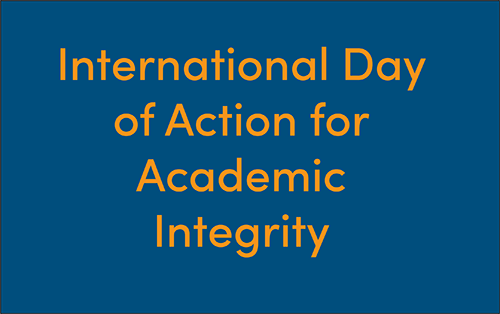As an Australian Government-controlled not-for-profit entity, TEQSA is required to publish certain financial documents.
You can access current financial statements in the most recent annual report.
Procurement
TEQSA’s procurement policies and practices are consistent with all relevant Australian Government laws, the Commonwealth financial framework (including the Commonwealth Procurement Rules), and other applicable policies.
Tenders and major planned procurement
TEQSA advertises all tenders and all major planned procurement on the Australian Government tendering website, AusTender.
General purchase order conditions
The general conditions by which TEQSA (‘The Commonwealth’) enters into an agreement with a provider for the purchase of goods and/or services.
Read the General purchase order conditions (DOC)
Senate Order on entity contracts
On 20 June 2001, the Senate agreed to an Order requiring each Minister to table a letter advising that a list of contracts in respect of each entity administered by that Minister has been placed on the Internet with access to the list through the entity homepage. The letter must be tabled no later than two calendar months after the end of the calendar and financial years.
An amendment to the Order of 14 May 2015 requires all procurement contracts be listed in a report on the AusTender website, with non-procurement contracts to be listed on entity websites.
Commencing with the 2014-15 financial year report, non-corporate Commonwealth entities will use AusTender to satisfy the requirements of the senate order with respect to procurement contracts only. A listing of procurement contracts is available through the Senate Order page on the AusTender website.
Senate Order listing
- TEQSA Senate Order for entity contracts 2024–25
- TEQSA Senate Order for entity contracts 2024 listing
- TEQSA Senate Order for entity contracts 2023–24
- TEQSA Senate Order for entity contracts 2023 listing
- TEQSA Senate Order for entity contracts 2022–23 financial year listing
Procurement complaints
General procurement complaints
To lodge a general complaint about any procurement conducted by TEQSA or if you believe TEQSA has breached Commonwealth Procurement Rules, please email procurement@teqsa.gov.au attaching copies of all relevant documents.
To help us resolve your complaint quickly, please include the following information in your written submission:
- your name, supplier business name, ABN, address, phone and email address
- details of the procurement, including the service, estimated contract value, relevant times and dates, AusTender ID and UNSPSC code (if known)
- a factual and concise outline of your complaint and any Commonwealth Procurement Rules you believe we breached
- any other information, documents or evidence to support your complaint.
When we receive your complaint we:
- acknowledge we’ve received it
- investigate and work with you to resolve the issue within 10 days
- let you know if it will take longer.
If you are happy with the outcome, we’ll close the matter and consider it resolved.
If you are not happy with the outcome, you can raise it with the Australian Government procurement coordinator or Commonwealth Ombudsman.
Complaints under the Government Procurement (Judicial Review) Act 2018 (GPJR Act)
The Government Procurement (Judicial Review) Act 2018 (the Act) establishes an independent complaint mechanism for government procurement processes. The Act requires the accountable authorities of relevant Commonwealth entities to formally investigate complaints that are made in accordance with the Act, and to suspend procurements during the investigation of a complaint under the Act, unless a public interest certificate is in place. The Act also places obligations on suppliers to take reasonable steps to resolve a complaint with the relevant Commonwealth entity before taking action in the Federal Circuit Court.
Procurement covered under the Act:
- goods and/or services at or above $80,000 (GST inc)
- construction services at or above $7.5 million (GST inc) not covered by an exemption.
If you believe the agency has breached Commonwealth Procurement Rules, you can make a complaint by email to procurement@teqsa.gov.au.
When we receive your complaint we:
- acknowledge we’ve received it
- assess whether it meets the criteria under the Act
- if appropriate, suspend the procurement unless a public interest certificate is issued
- investigate and work with you to resolve the issue within 10 days
- let you know if it will take longer.
At the end of the process, you will receive a report on the outcome of the investigation.
You can also apply to the court for an injunction or compensation under the Act. Please note that you need to submit a complaint with us first and show how the breach affected your interests.
Topic-specific information
- For guidance on the Act, please refer to Resource Management Guide No: 422 - Handling complaints on the Department of Finance website.
- Read more about Commonwealth Procurement Rules and exemptions on the Department of Finance website.
TEQSA legal services expenditure
TEQSA legal services expenditure for 2023–24
- External Legal Services expenditure: $386,417
- Internal Legal Services expenditure: $835,039
- Total (External + Internal) expenditure: $1,221,456
TEQSA legal services expenditure for 2022–23
- External Legal Services expenditure: $371,831
- Internal Legal Services expenditure: $707,021
- Total (External + Internal) expenditure: $1,078,852
TEQSA legal services expenditure for 2021–22:
- External Legal Services expenditure: $453,105
- Internal Legal Services expenditure: $695,127
- Total (External + Internal) expenditure: $1,148,232
TEQSA legal services expenditure for 2020–21:
- External Legal Services expenditure: $392,738
- Internal Legal Services expenditure: $733,271
- Total (External + Internal) expenditure: $1,126,009
TEQSA legal services expenditure for 2019–20:
- External Legal Services expenditure: $194,149
- Internal Legal Services expenditure: $695,426
- Total (External + Internal) expenditure: $889,575
TEQSA legal services expenditure for 2018–19:
- External Legal Services expenditure: $337,359
- Internal Legal Services expenditure: $657,430
- Total (External + Internal) expenditure: $994,789
TEQSA legal services expenditure for 2017–18:
- External Legal Services expenditure: $420,135
- Internal Legal Services expenditure: $618,686
- Total (External + Internal) expenditure: $1,038,821
TEQSA legal services expenditure for 2016–17:
- External Legal Services expenditure: $259,118
- Internal Legal Services expenditure: $503,358
- Total (External + Internal) expenditure: $762,476
TEQSA legal services expenditure for 2015–16:
- External Legal Services expenditure: $114,082
- Internal Legal Services expenditure: $558,490
- Total (External + Internal) expenditure: $672,572
TEQSA legal services expenditure for 2014–15:
- External Legal Services expenditure: $130,010
- Internal Legal Services expenditure: $417,772
- Total (External + Internal) expenditure: $547,782
TEQSA legal services expenditure for 2013–14:
- External Legal Services expenditure: $59,997
- Internal Legal Services expenditure: $463,004
- Total (External + Internal) expenditure: $523,001
TEQSA legal services expenditure for 2012–13:
- External Legal Services expenditure: $79,613
- Internal Legal Services expenditure: $472,972
- Total (External + Internal) expenditure: $552,585
TEQSA legal services expenditure for 2011–12:
- External legal services expenditure: $48,552
- Internal legal services expenditure*: $263,529
- Total Legal Services expenditure: $312,081
* Internal expenditure includes direct and indirect costs related to TEQSA’s internal legal services.
Executive Remuneration Reporting
Executive Remuneration Reporting is now published in our annual report.
2017-18 Executive Remuneration Reporting
The following tables outline the remuneration of substantive TEQSA executives employed during the 2016-17 and 2017-18 financial years.
Table A (2017-18)
Remuneration paid to executives during the reporting period 2017-18
| Total Remuneration | Executives No. | Average Reportable Salary | Average Contributed Superannuation | Average Allowances | Average Bonus Paid | Average Total Remuneration |
|---|---|---|---|---|---|---|
| $ | $ | $ | $ | $ | ||
| $200,000 and less | 8 | 133,403 | 19,820 | - | - | 153,223 |
| $250,001 to $275,000 | 1 | 238,718 | 22,678 | - | - | 261,396 |
| $400,001 to $425,000 | 1 | 424,741 | - | - | - | 424,741 |
| Total number of executives | 10 |
Published on 31 July 2018
Table B (2017-18)
Remuneration paid to other highly paid staff in reporting period 2017-18
TEQSA did not have other highly paid staff with reportable remuneration of $200,001 or more in the reporting period 2017-18.
Table A (2016-17)
Remuneration paid to executives during the reporting period 2016-17
| Total Remuneration | Executives No. | Average Reportable Salary | Average Contributed Superannuation | Average Allowances | Average Bonus Paid | Average Total Remuneration |
|---|---|---|---|---|---|---|
| $ | $ | $ | $ | $ | ||
| $200,000 and less | 6 | 144,609 | 21,389 | - | - | 165,998 |
| $200,001 to $225,000 | 1 | 173,108 | 32,649 | - | - | 205,757 |
| $225,001 to $250,000 | 1 | 208,839 | 19,840 | - | - | 228,679 |
| $375,001 to $400,000 | 1 | 380,299 | 9,962 | - | - | 390,261 |
| Total number of executives | 9 |
Table B (2016-17)
Remuneration paid to other highly paid staff in reporting period 2016-17
TEQSA did not have other highly paid staff with reportable remuneration of $200,001 or more in the reporting period 2016-17.
Key requirements/definitions
The 'reportable salary' column is prepared on a cash basis using reportable salary as defined as the sum of:
- gross payments (including bonuses)
- reportable fringe benefits (net amount)
- reportable employer superannuation
as reported in an individual's payment summary.
The 'contributed superannuation' column is prepared on a cash basis using contributed superannuation as defined as follows:
- for individuals that are in a defined contribution scheme (e.g. PSSap), "contributed superannuation" should include the defined contribution amounts. This amount is typically located on the individual's payslips
- for individuals that are in a defined benefit scheme (e.g. PSS and CSS), "contributed superannuation" should include the Notional Employer Contribution Rate (NECR) amount, Employer Productivity Superannuation Contribution (also known as the Productivity Component) and any Additional Lump Sum Contribution paid during the financial reporting period.
This information is reported under Executive Remuneration Reporting Guidelines set out by the Department of Prime Minister and Cabinet.












